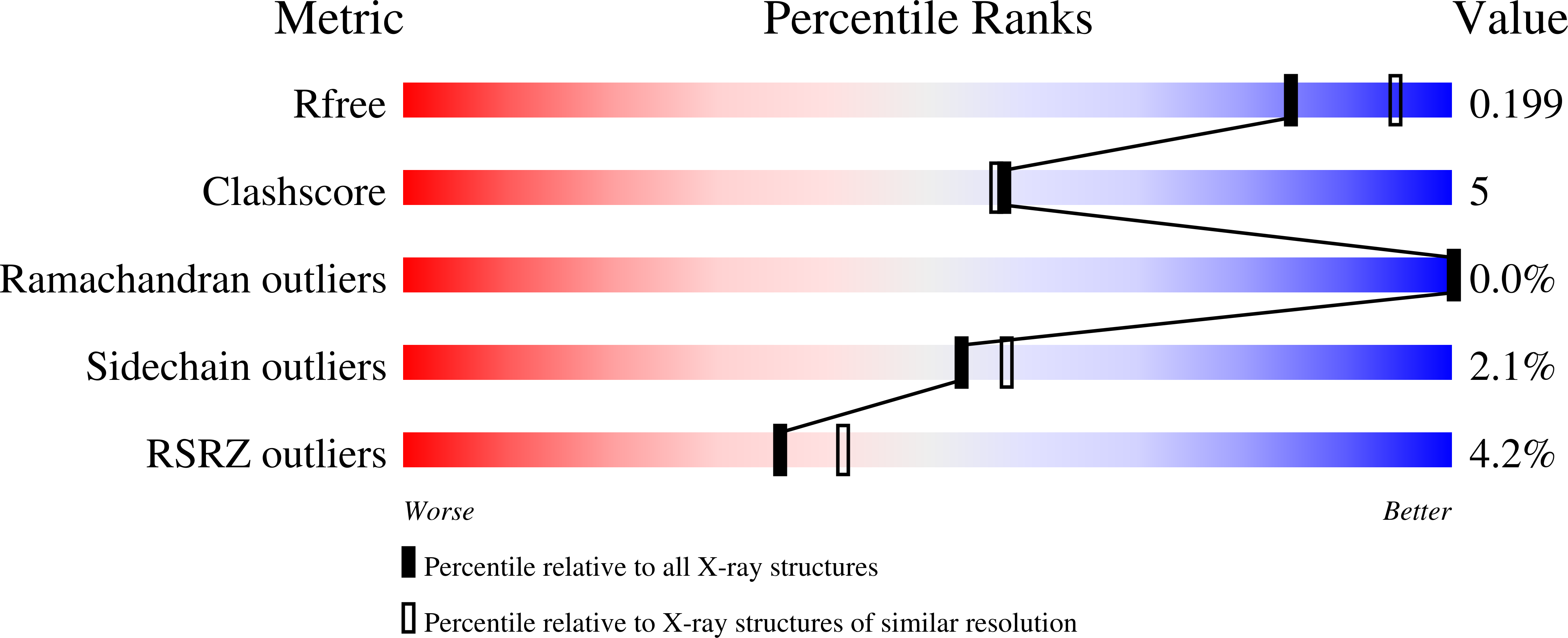Antitumor Activity of Cytotoxic Cyclooxygenase-2 Inhibitors.
Uddin, M.J., Crews, B.C., Xu, S., Ghebreselasie, K., Daniel, C.K., Kingsley, P.J., Banerjee, S., Marnett, L.J.(2016) ACS Chem Biol 11: 3052-3060
- PubMed: 27588346
- DOI: https://doi.org/10.1021/acschembio.6b00560
- Primary Citation of Related Structures:
4OTJ - PubMed Abstract:
Targeted delivery of chemotherapeutic agents to tumors has been explored as a means to increase the selectivity and potency of cytotoxicity. Most efforts in this area have exploited the molecular recognition of proteins highly expressed on the surface of cancer cells followed by internalization. A related approach that has received less attention is the targeting of intracellular proteins by ligands conjugated to anticancer drugs. An attractive target for this approach is the enzyme cyclooxygenase-2 (COX-2), which is highly expressed in a range of malignant tumors. Herein, we describe the synthesis and evaluation of a series of chemotherapeutic agents targeted to COX-2 by conjugation to indomethacin. Detailed characterization of compound 12, a conjugate of indomethacin with podophyllotoxin, revealed highly potent and selective COX-2 inhibition in vitro and in intact cells. Kinetics and X-ray crystallographic studies demonstrated that compound 12 is a slow, tight-binding inhibitor that likely binds to COX-2's allosteric site with its indomethacin moiety in a conformation similar to that of indomethacin. Compound 12 exhibited cytotoxicity in cell culture similar to that of podophyllotoxin with no evidence of COX-2-dependent selectivity. However, in vivo, compound 12 accumulated selectively in and more effectively inhibited the growth of a COX-2-expressing xenograft compared to a xenograft that did not express COX-2. Compound 12, which we have named chemocoxib A, provides proof-of-concept for the in vivo targeting of chemotherapeutic agents to COX-2 but suggests that COX-2-dependent selectivity may not be evident in cell culture-based assays.
Organizational Affiliation:
Departments of Biochemistry, Chemistry, and Pharmacology, A.B. Hancock Memorial Laboratory for Cancer Research, Vanderbilt Institute of Chemical Biology, Vanderbilt University School of Medicine , 850 RRB, 2220 Pierce Ave., Nashville, Tennessee 37232, United States.



















